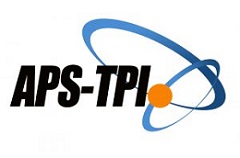Developing an E-Module on Economics Based on Education for Sustainable Development to Enhance High School Students' Critical Thinking
Abstract
This study developed an economics e-module aligned with Education for Sustainable Development (ESD) to respond to the urgent need for innovative learning resources that foster students’ critical thinking in facing sustainability challenges. The e-module was designed using the ADDIE model (Analysis, Design, Development, Implementation, Evaluation), created with Canva, and presented in flipbook format via Heyzine. Findings confirmed a significant advancement in students’ critical thinking skills, with a Paired Sample t-Test result of Sig. (2-tailed) < 0.001 and an Independent Sample t-Test result of 0.040. The experimental class attained higher mean N-Gain score (0.64, moderate) contrasted to the control class (0.53). Students also rated the e-module very positively (90%, excellent). These results reveal that the ESD-based economics e-module is practical, effective, and contributes to the enhancement of high school students’ critical thinking abilities.
Keywords
Full Text:
PDFReferences
Arsana, J., Sriartha, I. P., & Sukadi. (2024). Pengaruh Model Cased Based Learning Berbantuan Flipped Clasroom terhadap Keterampilan Berpikir Kritis Siswa Ditinjau dari Gaya Kognitif. Ekuitas: Jurnal Pendidikan Ekonomi, 12(1), 165–175. https://ejournal.undiksha.ac.id/index.php/EKU
Branch, R. M. (2009). Instructional Design-The ADDIE Approach. Springer.
Damayanti, A. F., & Surjanti, J. (2022). Penerapan Model PBL dengan Konteks ESD dalam Meningkatkan Hasil Belajar dan Sustainability Awareness Peserta Didik. Buana Pendidikan, 18(1), 93. http://jurnal.unipasby.ac.id/index.php/jurnal_buana_pendidikan/index
Draper-Rodi, J., Vogel, S., & Bishop, A. (2018). Design and development of an e-learning programme: An illustrative commentary. International Journal of Osteopathic Medicine, 29, 36–40. https://doi.org/https://doi.org/10.1016/j.ijosm.2018.07.002
Facione, P. A. (2015). Permission to Reprint for Non-Commercial Uses Critical Thinking: What It Is and Why It Counts. Peter A. Facione, Measured Reasons LLC. www.insightassessment.com
Felix, S. M., Lønnum, M., Lykknes, A., & Staberg, R. L. (2025). Teachers’ Understanding of and Practices in Critical Thinking in the Context of Education for Sustainable Development: A Systematic Review. In Education Sciences (Vol. 15, Issue 7). Multidisciplinary Digital Publishing Institute (MDPI). https://doi.org/10.3390/educsci15070824
Fitriana, E., Djono, D., & Sumaryati, S. (2024). Possibilities for Using E-Modules in Vocational High Schools to Facilitate Critical Thinking Skills. IJORER : International Journal of Recent Educational Research, 5(3), 656–665. https://doi.org/10.46245/ijorer.v5i3.595
Hake, R. (1998). Interactive-Engagement Versus Traditional Methods: A Six-Thousand-Student Survey of Mechanics Test Data for Introductory Physics Courses. American Journal of Physics - AMER J PHYS, 66. https://doi.org/10.1119/1.18809
Hasanah, M., Supeno, S., & Wahyuni, D. (2023). Pengembangan E-Modul Berbasis Flip Pdf Professional untuk Meningkatkan Keterampilan Berpikir Kreatif Siswa pada Pembelajaran IPA. Tarbiyah Wa Ta’lim: Jurnal Penelitian Pendidikan Dan Pembelajaran, 44–58. https://doi.org/10.21093/twt.v10i1.5424
Herawati, N. S., & Muhtadi, A. (2018). Pengembangan modul elektronik (e-modul) interaktif pada mata pelajaran Kimia kelas XI SMA. Jurnal Inovasi Teknologi Pendidikan, 5(2), 180–191. https://doi.org/10.21831/jitp.v5i2.15424
Indriani, F. F., & Sakti, N. C. (2022). Pengembangan e-LKPD Berbasis Komik untuk Meningkatkan Kemampuan Berpikir Kritis Peserta Didik Kelas XI IPS SMA. Jurnal PTK Dan Pendidikan, 8(1). https://doi.org/10.18592/ptk.v8i1.6414
Ismawati, E., Hersulastuti, Amertawengrum, I. P., & Anindita, K. A. (2023). Portrait of Education in Indonesia: Learning from PISA Results 2015 to Present. International Journal of Learning, Teaching and Educational Research, 22(1), 321–340. https://doi.org/10.26803/ijlter.22.1.18
Kamalia, P. U., Subroto, W. T., & Sakti, N. C. (2025). Bibliometric Analysis of Cooperatives Role in a Environmental Economy. Asian Journal of Environmental Research, 2(1), 1–15. https://doi.org/10.69930/ajer.v2i1.261
Ketut, N., Budayani, S., & Meitriana, A. (2023). Ekuitas: Jurnal Pendidikan Ekonomi Efektivitas Model Pembelajaran Project Based Learning Berbantuan Mind Map terhadap Keterampilan Berpikir Kritis dalam Pembelajaran Ekonomi pada Siswa Kelas X di SMAS Dharma Kirti Sengkidu A R T I C L E I N F O. 11(1), 86–97. https://ejournal.undiksha.ac.id/index.php/EKU
Kohl, K., & Hopkins, C. (2022). Reflections of Good Practice of Infusing ESD to Improve Education Outcomes for Indigenous Learners in Light of a Global Pandemic. Journal of Teacher Education for Sustainability, 24(2), 99–112. https://doi.org/10.2478/jtes-2022-0019
Lah, N. H. C., Hashim, M., Harun, J., & Abdullah, Y. (2024). The evaluation of problem-solving oriented e-module in learning computer-based subject. International Journal of Evaluation and Research in Education , 13(1), 547–558. https://doi.org/10.11591/ijere.v13i1.25486
Luthfiyah, A., Subroto, W. T., & Sakti, N. C. (2025). Education for Sustainable Development (ESD) Research Trends 2020-2024: Bibliometrics Analysis. Jurnal Pendidikan Edutama, 12(1), 162–171.
Mat, H., Mustakim, S. S., Razali, F., Ghazali, N., & Minghat, A. D. (2024). Effectiveness of digital learning on students’ higher order thinking skills. International Journal of Evaluation and Research in Education (IJERE), 13(5), 2817. https://doi.org/10.11591/ijere.v13i5.29449
Munir, S., & Santoso, A. S. (2022). Pengembangan Aplikasi “My Brascho” Untuk Mata Pelajaran Ekonomi di SMA Brawijaya Smart School. Ekuitas: Jurnal Pendidikan Ekonomi, 10(2), 228–240. https://ejournal.undiksha.ac.id/index.php/EKU
Najuah, Lukitoyo, P. S., & Wirianti, W. (2020). Modul ElektronikProsedur Penyusunan dan Aplikasinya (J. Simarmata, Ed.). Yayasan Kita Menulis.
Najwa, H. A., & Suhartini. (2023). Development of E-Module Integrated with Education for Sustainable Development (ESD) on Enviromental Change Material. Jurnal Penelitian Pendidikan IPA, 9(12), 12130–12138. https://doi.org/10.29303/jppipa.v9i12.6105
Olsson, D. (2022). Facilitating democratic processes for sustainability: the possibilities and limitations of teaching guides for climate change education. Environmental Education Research, 28(7), 970–985. https://doi.org/10.1080/13504622.2021.1994927
Pitorini, D. E., Suciati, & Harlita. (2024). Students’ Critical Thinking Skills Using an E-Module Based on Problem-Based Learning Combined with Socratic Dialogue. Journal of Learning for Development, 11(1), 52–65.
Purnomo, A. R., Yulianto, B., Mahdiannur, M. A., & Subekti, H. (2023). Embedding Sustainable Development Goals to Support Curriculum Merdeka Using Projects in Biotechnology. International Journal of Learning, Teaching and Educational Research, 22(1), 406–433. https://doi.org/10.26803/ijlter.22.1.23
Rahman, A., Masitoh, S., & Mariono, A. (2022). Collaborative Learning to Improve Creative and Critical Thinking Skills: From Research Design to Data Analysis. In International Journal of Educational Review (Vol. 4, Issue 1).
Rasyid, R., Agustang, A. T. P., Aryuni, V. T., Maru, R., Mufiana, I., & Soamole, H. (2024). Validity of Environmental Education E-Module Based on Education for Sustainable Development Using Flipcreator Platform to Develop Environmental Awareness in Geography Education Students at Khairun University. Journal of Applied Science, Engineering, Technology, and Education, 6(2), 105–117. https://doi.org/10.35877/454RI.asci3093
Sakti, N. C., Soesatyo, Y., Surjanti, J., Fitrayati, D., Nurlaili, E. I., Studi, P., & Ekonomi, P. (2023). Pengembangan Strategi Membangun Critical Thinking Melalui Pembelajaran Ekonomi Berbasis Konstruktivistik. Jurnal Pendidikan Ekonomi Undiksha, 15(1), 36–45. https://doi.org/10.23887/jjpe.v15
Sugiyono, P. (2019). Metode Penelitian Kuantitatif Kualitatif dan R&D (D. Sutopo. S. Pd, MT, Ir. Bandung: Alfabeta.
Sulhan, A. S., Wilujeng, I., & Prasetyo, Z. K. (2023). Improving Critical Thinking Skills Students Through Problem Based Learning E-Module. Jurnal Penelitian Pendidikan IPA, 9(11), 9481–9486. https://doi.org/10.29303/jppipa.v9i11.5231
Surjanti, J., Candasakti, N., Fitrayati, D., Kurniawan, R. Y., & Ardiansyah, E. H. (2019). Penguatan Rencana Pelaksanaan Pembelajaran Ekonomi Berbasis Alam. ABIMANYU: Journal of Community Engagement, 1, 32–46.
UNESCO. (2017). Education for sustainable development goals : learning objectives. the United Nations Educational, Scientific and Cultural Organization.
UNESCO. (2020). Education for Sustainable Development: A Roadmap Education for Sustainable Development A roadmap. The United Nations Educational, Scientific and Cultural Organization. https://doi.org/10.54675/YFRE1448
Utaminingsih, E. S., & Ellianawati. (2024). DEVELOPMENT OF STEAM-BASED E-MODULES ON HUMAN CIRCULATORY TOPICS CONTAINING CRITICAL REASONING AND INDEPENDENT CHARACTERS. Turkish Online Journal of Distance Education-TOJDE, 26(1), 48–84.
Refbacks
- There are currently no refbacks.





.png)













